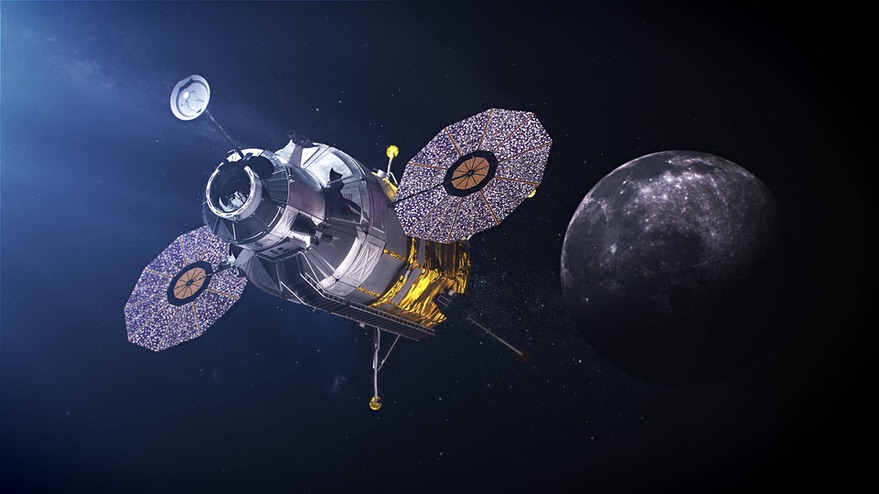
WASHINGTON — A final fiscal year 2020 spending bill released by congressional appropriators Dec. 16 would give NASA more than $22.6 billion, but falls short of the agency’s request for lunar lander development.
House and Senate appropriators released a pair of spending packages that would fund the federal government for the rest of the fiscal year, which started Oct. 1. One of the “minibus” bills includes the commerce, justice and science measure, which features funding for NASA.
That minibus provides $22.629 billion in overall funding for the agency, close to the administration’s original request when including the $1.6 billion amendment submitted in May. A House bill passed in June provided $22.315 billion while a Senate bill in October offered $22.75 billion for the agency.
NASA’s exploration programs get a little more than $6 billion in the bill, which adopted the Senate’s funding levels for Orion, the Space Launch System and Exploration Ground Systems. However, it cut exploration research and development work by more than $200 million, to $1.435 billion.
In that exploration R&D program, the report accompanying the bill allocates $600 million for advanced cislunar and surface capabilities, which features work on human-rated lunar landers. The agency, in its budget amendment, requested $1 billion for that work; the Senate bill provided $744 million while the House included nothing.
Besides the funding, the report also directs NASA to “prioritize the selection of proposals that emphasize designs which reduce risk to schedule and engineering, and, above all, life” for the lunar lander program. That is in addition to language in the Senate report that called for “an appropriate testing regimen” for the lander and that such landers “can utilize any U.S. launch vehicle, commercial or otherwise, that is available for lunar exploration missions.”
NASA Administrator Jim Bridenstine has said in recent weeks that he would find ways to keep the Human Landing System program going if funding fell short of that desired $1 billion. In a Dec. 10 interview during the third annual SpaceNews Awards for Excellence & Innovation, he said the agency would “get more creative” if the agency didn’t get as much lander funding as requested.
“We have knobs that we can turn,” he said, but suggested reduced funding would also reduce the chances of making the 2024 date. “The $1.6 billion gives us the most opportunity to have the highest probability of success, but there are other things we can do and be creative and maintain the momentum even while we have temporary constraints.”
The minibus largely adopted spending levels for the rest of NASA that fell between the marks in the House and Senate versions. That included rejecting proposals to cancel several Earth science missions and the Wide-Field Infrared Survey Telescope (WFIRST) and to close NASA’s Office of STEM Engagement, formerly the Office of Education. WFIRST received $510.7 million, close to previous NASA estimates of the funding required to keep the mission on schedule for launch in 2025.
The bill allocated $592.6 million for the Europa Clipper mission. It also requires that NASA launch the mission on an SLS by 2025, and also use the SLS for a follow-on lander mission in 2027 despite not allocating any funding for the lander. The White House had specifically requested allowing the use of commercial launch vehicles for Europa Clipper, arguing it would save money and also free up SLS vehicles for the Artemis lunar program.
The House is scheduled to vote on the spending bill as soon as Dec. 17 and send it on to the Senate. NASA and the rest of the federal government are operating under a continuing resolution that funds programs at fiscal year 2019 levels. That continuing resolution expires Dec. 20.
"nasa" - Google News
December 17, 2019 at 06:32AM
https://ift.tt/38NBxGH
NASA to receive $22.6 billion in fiscal year 2020 spending bill - SpaceNews
"nasa" - Google News
https://ift.tt/2pR2oQP
Shoes Man Tutorial
Pos News Update
Meme Update
Korean Entertainment News
Japan News Update
Bagikan Berita Ini














0 Response to "NASA to receive $22.6 billion in fiscal year 2020 spending bill - SpaceNews"
Post a Comment